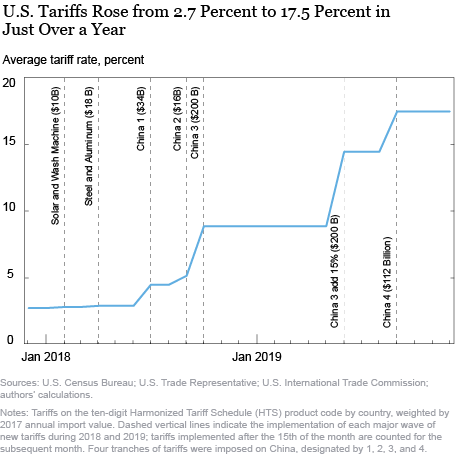TradeWars
Navigating Tariffs: Trade Wars’ Economic Impact

Navigating Tariffs: Trade Wars’ Economic Impact
Tariffs, often used as a tool in trade wars, have far-reaching implications for the global economy. This article delves into the intricate dynamics of tariffs and explores the profound economic impact of trade wars on nations, businesses, and consumers.
Understanding Tariffs as Trade Tools
Tariffs are taxes imposed on imported goods, designed to protect domestic industries or address trade imbalances. While they can be used strategically, the imposition of tariffs often triggers a chain reaction of consequences that reverberate through the interconnected web of global trade.
Trade Wars: The Escalation of Tariff Strategies
Trade wars involve tit-for-tat tariff escalations between nations, creating a hostile economic environment. The strategic use of tariffs as a negotiating tool can quickly devolve into a full-fledged trade war, where each side aims to protect its economic interests but risks damaging the global trade ecosystem in the process.
Impact on Global Supply Chains
One of the primary effects of tariffs and trade wars is the disruption of global supply chains. As tariffs increase the cost of imported goods, businesses may face higher production costs, leading to reevaluations of supply chain strategies. This realignment can result in delays, increased prices for consumers, and challenges for industries heavily dependent on international sourcing.
Economic Consequences for Nations
Nations engaged in trade wars often experience economic consequences. Retaliatory tariffs can lead to reduced exports, negatively affecting industries that heavily rely on international markets. Additionally, the overall economic uncertainty generated by trade wars can hinder investment and economic growth.
Business Strategies in the Face of Tariffs
Businesses must adapt to the changing landscape of tariffs and trade wars. Strategies may involve diversifying suppliers, renegotiating contracts, or absorbing some of the increased costs. Navigating these challenges requires agility and a keen understanding of the evolving trade environment.
Consumer Impact: Higher Prices and Economic Uncertainty
Tariffs, by increasing the cost of imported goods, often translate into higher prices for consumers. This impact is felt across various sectors, from electronics to everyday goods. Moreover, the uncertainty created by trade wars can influence consumer confidence, potentially leading to changes in spending patterns and economic behavior.
Negotiation and Diplomacy: Seeking Resolution
As nations grapple with the economic fallout of trade wars, the importance of negotiation and diplomacy becomes evident. Seeking resolution through diplomatic channels can mitigate the long-term damage inflicted by tariffs. Multilateral cooperation and trade agreements may offer avenues for resolving disputes and restoring economic stability.
The Role of International Organizations
International organizations, such as the World Trade Organization (WTO), play a crucial role in addressing trade disputes and providing a framework for negotiation. Engaging with these organizations helps establish rules and norms, fostering a more predictable and stable global trade environment.
Strategies for Mitigating Tariff Impact
To navigate the impact of tariffs and trade wars, businesses and nations may adopt various strategies. These include diversifying markets, investing in domestic industries, and actively participating in diplomatic efforts to find mutually beneficial resolutions. Strategic planning is essential for mitigating the
